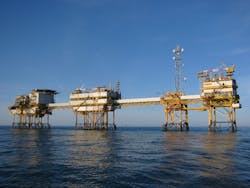Neptune extends digital twin development to more North Sea platforms
Offshore staff
LONDON – Neptune Energy has commissioned digital twins of two of its platforms in the Dutch North Sea, the purpose being to speed up work schedules and cut costs by allowing engineers to perform more associated work onshore.
3D technology specialist Eserv is creating digitized versions of the L10-A complex’s drilling and production platforms where a large-scale offshore carbon capture and storage (CCS) project is planned.
Previously the companies have collaborated on five digital twins of other Neptune-operated platforms in the UK, Norwegian, and Dutch sectors. The initiative will allow engineers and integrity specialists to perform an estimated 4,100 hours of work from onshore locations, Neptune claims.
If the CCS project in the L10 area goes ahead, it will be one of the largest in the Dutch North Sea, the company added, with the depleted gas fields around the L10-A, L10-B, and L10-E areas capable of storing over 50% of the CO2 volumes targeted by the Dutch industrial sector.
Lex de Groot, managing director of Neptune in the Netherlands, said: “Embedding modern technologies in this way ensures we can plan work, inspect plant equipment, and monitor changes in the physical structure, or identify potential issues early and accurately, increasing our chance of success and enabling us to deliver against much shorter timescales.”
A digital twin of the Cygnus platform in the UK southern North Sea also supported development of flight plans for drone-based surveys as part of a methane emissions study.
01/06/2022
